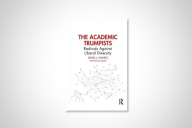You have /5 articles left.
Sign up for a free account or log in.
A regular concern of adjunct instructors is that one or two student complaints -- even totally unjustified grievances -- can lead department chairs not to renew their teaching contracts.
On Thursday, a Florida appeals court gave a victory to one such adjunct, reversing a lower court's ruling and finding that the college instructor is entitled to know the name of the student who accused him of being a poor teacher. The adjunct's contract was subsequently not renewed, and he argued that the name might help him defend against false accusations that he maintains led to the nonrenewal.
The appeals court found that the student's name in such a case isn't protected by state or federal law -- and that the adjunct was entitled to the name.
Matt Williams, vice president of the New Faculty Majority, a group that represents those off the tenure track, said he was pleased to hear that the adjunct had won the case. "If your employment is on the line, you have to be able to defend yourself," he said. Williams added that he has heard from many non-tenure-track faculty members that their contracts weren't renewed after a student or two sent in an anonymous complaint.
Darnell Rhea, the adjunct in this case, sued Santa Fe College, in Florida, where adjuncts work on semester-by-semester contracts.
There was no dispute over Rhea being able to see -- without the student's name -- the e-mail complaint sent to the chair. The e-mail accused Rhea of making "humiliating remarks" to students and of using "unorthodox" teaching methods. Rhea denied these charges but said that to truly rebut them, he needed to know his accuser. He said he suspected he could then show why the charges were untrue.
The college denied that it had made its decision not to renew Rhea's contract based on the student complaint. But the college also refused to release an unredacted version of the e-mail, arguing that it was an "educational record," protected by Florida and federal privacy statutes. A district court backed the college, and Rhea appealed, acting as his own lawyer.
A three-judge panel unanimously agreed that he was entitled to the student's name. The decision focused on the idea that education records are about students.
"We conclude that the e-mail before us is not an 'education record' because it does not contain information directly related to a student," the decision said. "The e-mail focuses primarily on instructor Rhea’s alleged teaching methods and inappropriate conduct and statements in the classroom, and only incidentally relates to the student author or to any other students in the classroom. The fundamental character of the e-mail relates directly to the instructor; the fact that it was authored by a student does not convert it into an 'education record.' [The Family Educational Rights and Privacy Act] was not intended to protect from disclosure such records primarily questioning an instructor’s teaching methods or criticizing the teacher’s classroom demeanor and comments."
The decision does not restore Rhea's job, but sends the case back to a lower court for further hearings.
Rhea, who could not be reached for comment, told the Associated Press that he was more concerned about the principle in his case than getting his job back. "To me, it's just un-American that you don't have a right to know who your accuser is," he said.








